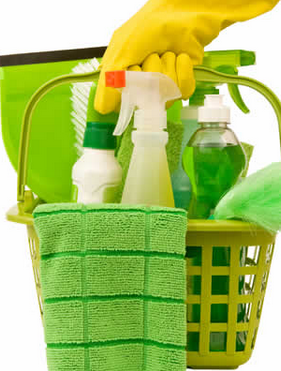Top Tips for Healthy Gardening
Are you looking for ways to make your gardening experience more enjoyable and healthy? Most people love or either hate gardening; there is no in-between. Those who love it report significant mood improvements. It’s no wonder: Gardening is beneficial for your mental health. There is a sense of happiness and achievement when you grow your own food, for instance. But even gardeners who prefer flowers feel elevated when they admire the beautiful display of colors in their backyards.
So what do people who don’t like gardening say? They tend to struggle with health concerns and discomfort when they try gardening. This could range from back pain to cold fingers. Yet, with the right solutions, they could also learn to love gardening and enjoy its mental health gains.
Are you trying to enjoy gardening but find it uncomfortable? Then look no further! In this blog post, we’ll be discussing the top tips for healthy gardening.
Invest in a bug repellent
When it comes to gardening, using bug repellent is an essential step in keeping yourself safe. Bugs are naturally attracted by plants. As a home gardener, you are unlikely to want to use pesticides. But this means that you will be surrounded by bugs when you are in the garden. Therefore, your first priority is to protect yourself from mosquitoes and other insects with a repellent that is also safe for your plants. You want an organic solution, such as the Lemongrass Farms bug sprays. Using a bug repellent can be a great way to make gardening more enjoyable and stress-free. As you’re working in your garden, take the necessary precautions to protect yourself from those annoying pests. And don’t forget to reapply as needed – especially after sweating or spending several hours outdoors!
Regarding protecting your plants, we’ll talk about companion planting in a bit.
Save your knees with pads
Gardeners need to make sure they’re wearing knee pads while they work in the garden. Knee pads prevent soreness, pain, and even potential injury. Knee pads protect knees from hard and uneven surfaces, like dirt and stones, and provide cushioning to reduce the impact of crouching and kneeling for long periods of time. Kneelers are also helpful for those with mobility challenges or arthritis in their knees, as the cushioning can help reduce discomfort.
When looking for knee pads for gardening, it’s important to find a comfortable pair that fits properly and is made from breathable materials. Make sure that the knee pads have adjustable straps to ensure a secure fit and stay in place while you move around in the garden. Additionally, look for water-resistant materials that keep your knees dry and protected from mud and other debris.
Bye-bye back pain
Many gardeners suffer from chronic back pain due to the repetitive motion of working in the yard and lifting heavy tools. To avoid this, it is important to use ergonomic tools designed to reduce strain on your body.
Look for tools with long handles that can reduce the amount of bending required when weeding, planting, or digging. It’s also helpful to use tools with lighter weights, as heavier tools require more energy to lift and can put a strain on your back. Additionally, using wheelbarrows or carts to transport heavy materials like soil or mulch will help to reduce the load you need to carry.
No gardening without gloves
Gardening gloves are a must when you’re doing any outdoor work. Not only do they protect your hands from dirt, cuts, and scrapes, but they also shield you from potentially harmful insects and plants. They help to prevent your nails and skin from getting dry and cracked by keeping your hands free of soil and other debris. Plus, they give you a better grip when pruning plants, digging holes, handling compost, or picking up stones. Look for ones with reinforced palms to give you extra protection against thorns, sticks, and other sharp objects.
A bit about companion planting
By pairing certain plants together, you can create a “bio-diverse” garden where pests are less likely to take hold, and your crops can thrive.
For example, planting strong-smelling herbs like basil or oregano near your vegetable garden can help keep away unwanted pests. Other herbs, such as mint and rosemary, also have aromatic qualities that can repel insects.
Additionally, planting certain vegetables together helps to increase productivity and growth. Some plants that work well together include beans and corn, squash and beans, tomatoes and onions, and carrots and lettuce. Companion planting makes gardening more manageable, which reduces fatigue and hassle for gardeners!
This is your sign to fall in love with gardening and make it a fun, enjoyable, and healthy activity. Gardening is the mental health boost we all need, and these little tips make it more accessible.
- Where Your Energy Really Goes and How to Get It Back - August 12, 2025
- How To Recover From A Serious Injury - August 12, 2025
- 4 Considerations for a Meaningful Funeral for Your Loved One - August 4, 2025


